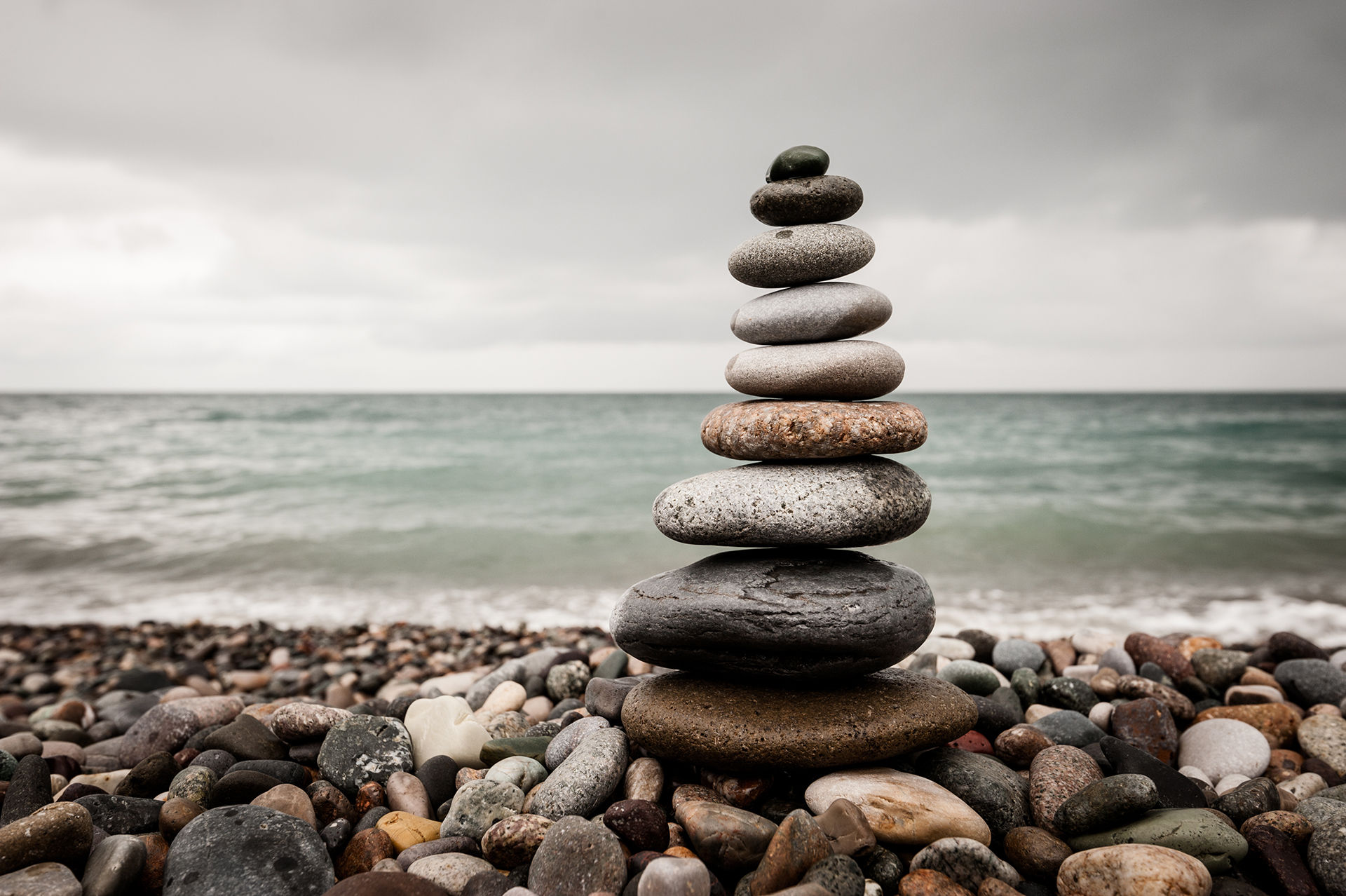Living With Paradox

In our Western world many people suffer from an inability to live with paradox and contradiction. We have lost touch with paradoxical, mystical or contemplative thinking in an education system with its basis in formal laws of logic and linearity, which has an unfortunate tendency to reinforce either/ or dualistic thinking. The startling idea that truth can be multilayered, unpredictable and contradictory is generally not a part of our modern Western world. Yet many of our great Christian thinkers and saints (and those in other faiths too) point to the necessity of embracing paradox. It is positively written into Christian doctrine as a means of taking us beyond simplistic connections to God - God is both one and three; Jesus is both human and divine. Wrestling with paradox eventually brings us to non-dual reconciliation on a higher level of awareness, beyond the conflict, beyond simplistic notions of Reality, to what Old Testament writers call 'Wisdom'. This wisdom is not a result of mental effort; it is a way of being... a way of being whole and fully open to a knowing that is more than rational thought alone.
In the Hebrew text of the Old Testament many words combine opposite meanings suggesting that the language is based on a world view that sees opposites and polarities as deeply connected to a unified source. For example, the Hebrew root chet-tet-aleph, which usually implies sin (chet) can also be used to refer to the purification from sin, as we find in the ninth verse of Psalm 51, which says, 'Purify [te'chateini] me with hyssop and I shall be purified.'

In the New Testament Paul also frequently draws on paradox to lead others into spiritual maturity. One well known example is in 2 Corinthians 12:10 where he says, 'When I am weak, then I am strong.' He presents a paradoxical spirituality of imperfection personified in his very self - the persecutor of Christians who becomes the 'chosen vessel' of Christ, overcoming strict lines between good and bad, evil and virtue.
Wrestling with, and then resting in, the reality of paradox can take us from either/ or to both/and thinking. Indeed, Jung understood paradox to be 'one of our most valued spiritual possessions.' Meister Eckhart, the 13th century Christian mystic, also saw the Reality of God as something that could only be grasped within the tension and clash of opposites, as a means to open the 'eye of our heart' as we begin to experience the limitations of human intellect, to find a deeper kind of knowing of the Divine.

'There are two types of truth. In the shallow type, the opposite of a true statement is false. In the deeper kind, the opposite of a true statement is true.'
Neils Bohr
It is our non-acceptance of paradox that also leads to so much confusion in both our personal and interpersonal lives. Black and white thinking leaves little room for shades of grey that characterise our daily existence. We can artificially distort ourselves where different feeling states are experienced as mutually exclusive. To experience any one feeling we have to cut off or deny all other feelings that are contradictory with severe consequences for our humanity (for more reflections on this please see my blog on spiritual bypassing). As anyone who has ever been intimate knows, the people we most love and admire can, at times, disappoint and hurt us. To be able to forgive and go on loving and trusting our intimates demands that we have the capacity to hold on to our love even when we are angry, to remember the good even when things feel bad, and most important, to see people (ourselves included) as whole beings, in all their strengths and weaknesses.
The Hebrew word for wholeness comes from the same Hebrew root as shalom, meaning peace. Wholeness is seen as a dynamic play of opposites balancing one another. The very letters in the common root, shin-lamed-mem, suggest wholeness involves the balancing of polar forces, for the first letter, shin, signifies fire, while the last letter, mem, signifies water. It is when water and fire, symbols of creation and destruction, coexisit in balance that we find wholeness and peace. In this sense peace and wholeness exist paradoxically when opposites are contained within a unifying vessel. So our journey to wholeness and holiness necessitates being able to hold within us the tensions of paradox.
James W. Fowler, a Methodist minister and Professor of theology and human development, also recognised the primacy of paradox in his well-known 1981 model of 'stages of faith development.' In his research he saw faith development as progressing through early stages characterised by dualistic thinking, to what he terms 'conjunctive faith' where we learn to rest in the questions and paradoxes, accepting the 'both/and' of our lives and understanding of the Divine. He perceives the goal of spiritual (and psychological) growth to be 'integration'; a state in which we function well and where our inner paradoxes are simply acknowledged and accepted.
How do you find living with the reality of paradox in your life and faith journey? Can you be gentle with yourself and simply 'be' with it, and allow it to take you to that higher level of awareness and deeper place of knowing?
'I want to beg you as much as I can... to be patient towards all that is unsolved in your heart and to try and love the questions themselves... Do not now seek answers which cannot be given you because you would not be able to live them. And the point is to live everything. Live the questions now. Perhaps you will then gradually, without noticing it, live along some distant day into the answer.'
Rainer Maria Rilke 'Letters to a Young Poet.'





































